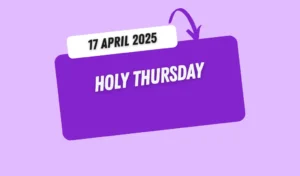Fourteenth Week of Ordinary Time
09th July 2024 (Tuesday)
Psalter: Week 2
Reading of the Day
First Reading: Hosea 8:4-7, 11-13
Thus says the Lord: Israel made kings, but not through me. They set up princes, but I knew it not. With their silver and gold they made idols for their own destruction. I have spurned your calf, O Samaria. My anger burns against them. How long will they be incapable of innocence? For it is from Israel; a craftsman made it; it is not God. The calf of Samaria shall be broken to pieces. For they sow the wind, and they shall reap the whirlwind. The standing corn has no heads; it shall yield no flour; if it were to yield, strangers would devour it. Because Ephraim has multiplied altars for sinning, they have become to him altars for sinning. Were I to write for him my laws by the ten thousands, they would be regarded as a strange thing. As for my sacrificial offerings, they sacrifice meat and eat it, but the Lord does not accept them. Now he will remember their iniquity and punish their sins; they shall return to Egypt.
Psalm 115:3-4, 5-6, 7ab and 8, 9-10 (R. 9a)
R/. House of Israel, trust in the Lord
Gospel Acclamation
V/. Alleluia
R/. Alleluia
V/. I am the good shepherd, says the Lord; I know my own and my own know me.
R/. Alleluia.
Gospel : Matthew 9:32-38
At that time: A demon-oppressed man who was mute was brought to Jesus. And when the demon had been cast out, the mute man spoke. And the crowds marvelled, saying, “Never was anything like this seen in Israel.” But the Pharisees said, “He casts out demons by the prince of demons.” And Jesus went throughout all the cities and villages, teaching in their synagogues and proclaiming the gospel of the kingdom and healing every disease and every infirmity. When he saw the crowds, he had compassion for them, because they were harassed and helpless, like sheep without a shepherd. Then he said to his disciples, “The harvest is plentiful, but the labourers are few; therefore pray earnestly to the Lord of the harvest to send out labourers into his harvest.”
Daily Gospel Reflection
Tuesday – Fourteenth Week of Ordinary Time
Guidelines: One of the greatest miseries of today’s society is its vulnerability and eagerness to be easily influenced by the wrong and false and be misguided
1. “Like sheep without a shepherd”! This is how Jesus felt toward the people of his time. This mainly refers to the people who lack true shepherding. They did not have the true shepherds that would love, care, guide, and serve them. They were distressed and helpless. They were looking for someone who would offer them assurance, comfort, and guidance. And they found this in Jesus.
2. In the then context of Jesus, this can also refer to the Pharisees and scribes who were supposed to shepherd the people through their guidance and support. They were well-versed in the Scripture and tradition. They should light the drooping spirits of the people and set them loyal on the path of God.
3. Instead, they were self-righteous and hypocritical. They were full of jealousy against Jesus. They just kept themselves busy in waiting for reasons to find fault with him. That is why, instead of praising God and rejoicing over Jesus’ healing of a demon-possessed mute man, they would accuse him of exorcising with the help of the prince of demons.
4. Similar was the situation of the people of Israel in the OT. As the first reading vividly depicts, they sinned again and again through their stubbornness, ingratitude, infidelity, and idolatry. Despite God’s mighty interventions, strong summons for repentance, and corrective chastisements, they would not mend their ways.
5. However, he would not give up. He would not hate and condemn them. The coming and the mission of Jesus was the clearest testimony of God’s unfailing and unceasing mercy. That is why, “when he saw the crowds, he had compassion for them, because they were harassed and helpless, like sheep without a shepherd”.
6. It is easy to sit back and go on blaming the people that they are like sheep without a shepherd, they are not following the way and the direction of the shepherd. But that will not solve the issue.
7. What is more important is whether we as the people of God and disciples of Christ are doing our duty of being shepherds to the sheep of the suffering and misguided humanity.
Practice: God is on the lookout for faithful labourers to work in his field and reap his harvest. He wants us to be responsible shepherds for the people of our times. But this is possible when we are good sheep to the good shepherd in the first place. A bad sheep can never be a good shepherd!







